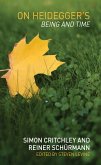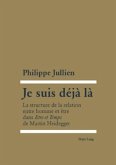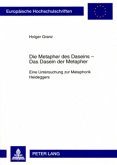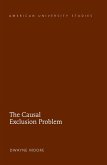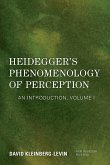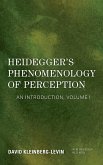The ideas of Martin Heidegger, one of the most important philosophers of the twentieth century, have had a profound influence on work in literary theory and aesthetics, as well as on mainstream philosophy. This book offers a clear and concise guide to Heidegger's notoriously complex writings, while giving special attention to his major work Being and Time. Richard McDonough adds historical context by exploring Heidegger's intellectual roots in German idealism and ancient Greek philosophy, and introduces readers to the key themes in Heidegger's work including Dasein, Existenz, time, conscience, death, and phenomenology. This book, which also considers Heidegger's controversial ethics (or "anti-ethics") and politics, would make an excellent text for both introductory and advanced undergraduate courses on existentialism, phenomenology, continental philosophy, and Heidegger himself.
"As scholarship on Martin Heidegger's thought goes, Richard M. McDonough's book is unique in its clarity and accessibility. It constitutes one of the few attempts to convey the depth of Heidegger's 'Being and Time' to the nonspecialist. McDonough's argument that Heidegger construes being as a dynamic, 'emergent' event preserves the ontological thrust of Heidegger's project, while providing a straightforward avenue by which those from the Anglo-American tradition can begin to transverse the labyrinth of Heidegger's hermeneutic phenomenology." (Frank H. Schalow, Department of Philosophy, University of New Orleans)
"This book gives a clear and concise account of Heidegger's basic ideas in 'Being and Time'. It is both an introductory text and a work of scholarship, so that the Heidegger beginner as well as the more advanced student can profit from it. Further, it neither attempts to denigrate Heidegger nor to assimilate him to some trendy philosophical view." (Wolfe Mays, Manchester Metropolitan University; Editor, Journal for the British Society of Phenomenology)
"This book gives a clear and concise account of Heidegger's basic ideas in 'Being and Time'. It is both an introductory text and a work of scholarship, so that the Heidegger beginner as well as the more advanced student can profit from it. Further, it neither attempts to denigrate Heidegger nor to assimilate him to some trendy philosophical view." (Wolfe Mays, Manchester Metropolitan University; Editor, Journal for the British Society of Phenomenology)


